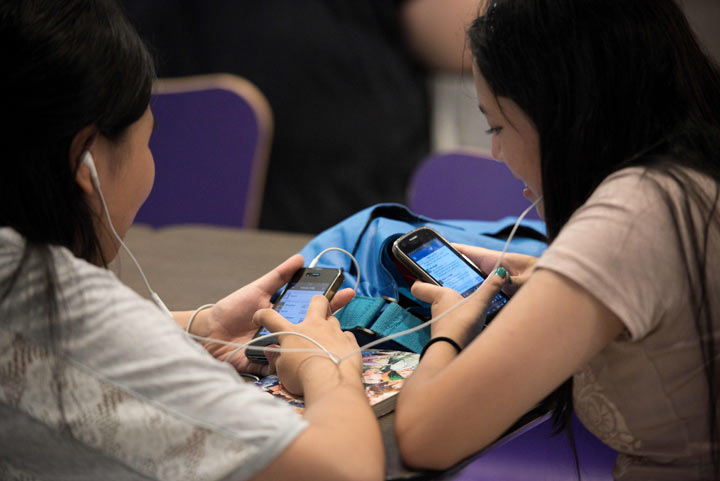TORONTO – Citizens in developing countries are embracing mobile devices as part of their daily lives, leading to economic advances in regions of Africa thanks to mobile payments.

According to new data from Pew Research Center, 68 per cent of cell phone owners in Kenya reported regularly making or receiving payments with their cell phone, followed by 50 per cent of users in Uganda, and 29 per cent of users in South Africa.
The only other region to show numbers as high was Russia, where 24 per cent of cell phone owners reported making mobile payments.
Pew cites a lack of landline connections as a reason for cell phone ownership skyrocketing in recent years.
“Across 24 countries, a median of only 23 per cent say they have a working landline telephone in their house, including as few as one per cent in Ghana and Kenya,” read the report.
“Instead, many emerging and developing nations have skipped landlines and moved straight to mobile technology.”
READ MORE: BlackBerry entering into emerging markets good, but no savior
While Pew’s research shows that cell phones have become a must-have for many people in countries like Egypt, Kenya and Malaysia, smartphones remain fairly rare in most regions.
Citizens in Lebanon, Chile, Jordan and China were the most likely to report owning a smartphone.
The study also found that those with a college degree are significantly more likely to own a smartphone than others. In Egypt, 72 per cent of college graduates own a smartphone, versus only 13 per cent of those without a degree.
GRAPHIC: Internet use, Smartphone Ownership and Social Networking in developing countries
The new data comes from Pew Research’s “Global Attitudes Project,” which gathers public opinion from around the world to gain insight on a variety of topics including Internet and technology use. The data comes from surveys of citizens in 24 countries with developing economies.
Internet usage in developing countries varies
The report found that Internet usage is linked to a country’s income.
“Generally, the higher a country’s GDP per capita, the higher its percentage of Internet users,” read the report.
Pew found that Russia, Chile and Argentina all had the highest Internet usage rates – they are also the three countries on the survey with the highest per capita incomes.
Though only 20 per cent of people use the Internet daily in 15 of the 24 countries surveyed, the majority of those who do have access to the Internet said they used social networking sites like Facebook or Twitter as a form of communication with family, and to keep up with world events.
- Ontario First Nation declares state of emergency amid skyrocketing benzene levels
- Do Canadians have an appetite for electric vehicles? Experts are divided
- Nearly 200 fossil fuel, chemical lobbyists to join plastic treaty talks in Ottawa
- More financial institutes are offering crypto-services, survey shows




Comments